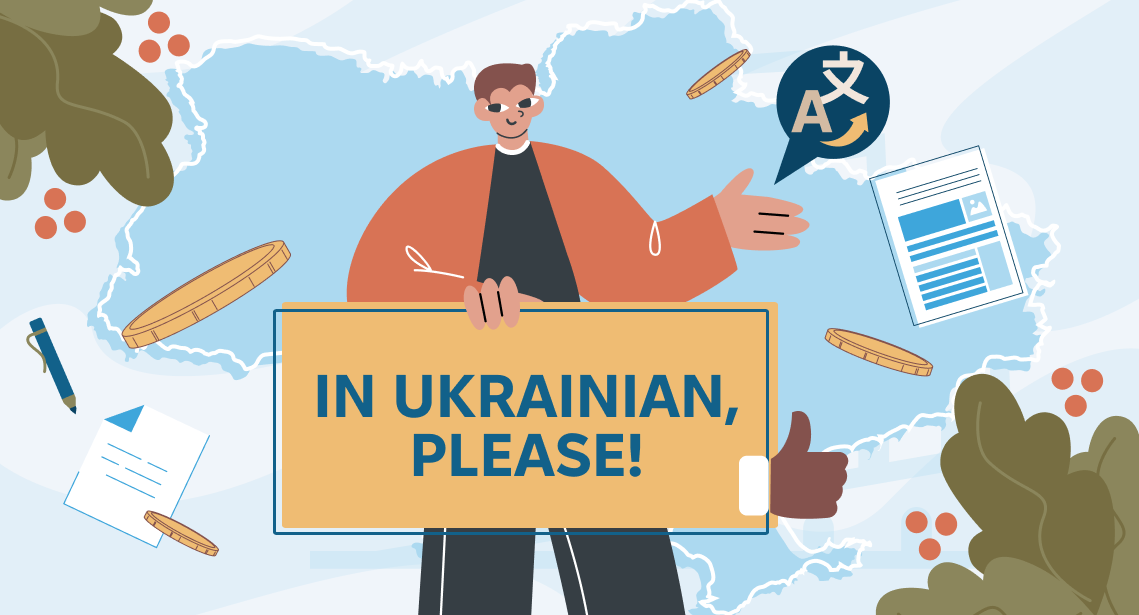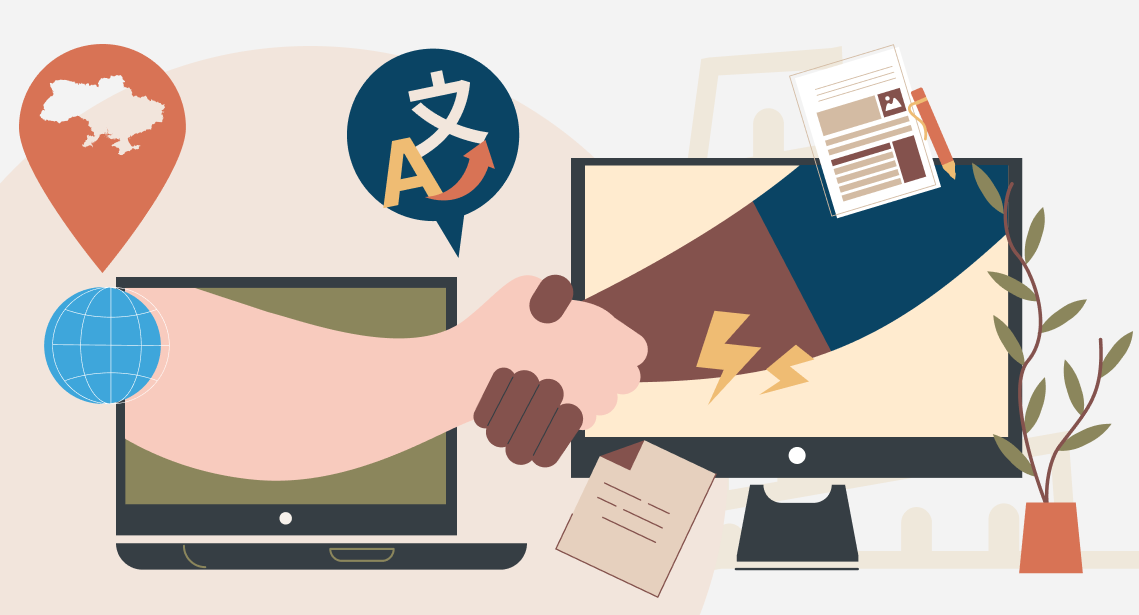Selling in Ukraine? Translate into Ukrainian!

Many might think that Ukrainian translation is unnecessary because all Ukrainians understand Russian. Well, we do. But delivering products only in Russian is not acceptable, even though we all understand it, and many of us still speak it. Let me explain why.
First, it’s a legal requirement. All product documentation must be in Ukrainian. The default page of your website must be in Ukrainian. If you are serving clients (e.g., in a restaurant, gym, etc.), you must address them in Ukrainian unless they specifically request another language (and it’s your choice whether to comply with their request). The Law on the Functioning of the Ukrainian Language as the State Language has been in effect since June 16, 2019, with a transition period that ended on January 16, 2021. Since July 2022, fines can be imposed for non-compliance. So, if you want to avoid lawsuits, serve your clients in Ukrainian.
Beyond legal obligations, there are marketing and ethical considerations. Since Russia’s full-scale invasion of Ukraine in 2022, many Russian-speaking Ukrainians have voluntarily switched to Ukrainian in their daily lives. After the destruction and suffering caused by Russian troops, the use of Russian has become a sensitive and painful issue for many. Addressing such individuals in Russian could provoke a backlash against your products and brand. Moreover, the absence of Ukrainian manuals or interfaces might alienate many potential Ukrainian customers.
For example, many Ukrainians prefer playing computer games in Ukrainian or English rather than using Russian localization. But not everyone knows English. It’s encouraging to see that many AAA games now have Ukrainian localization, something that seemed unlikely before 2022. However, the PS5 interface remains a mess—a mix of Ukrainian and Russian.
Certainly, some Ukrainians still use Russian—old habits die hard. But do you really want to limit your customer base to them and risk legal consequences?
If you’re selling to Ukrainians, speak Ukrainian to your customers. It will surely pay off.




